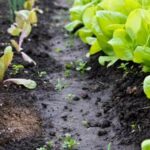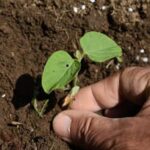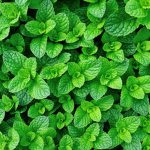Mulching is an essential practice in vegetable gardening, providing numerous benefits such as weed suppression, moisture retention, and temperature moderation. However, when it comes to choosing the right mulch for vegetable gardens, concerns about safety often arise. In this blog post, we will explore the safety of hardwood mulch in vegetable gardens and address common questions and misconceptions surrounding its use.
Understanding the composition and manufacturing process of hardwood mulch is crucial in assessing its safety. In the next section of this article, we will delve into what exactly constitutes hardwood mulch and how it is made. We will also discuss why hardwood mulch has gained popularity among gardeners due to its unique attributes that make it an ideal choice for vegetable gardens.
One key aspect of evaluating the safety of hardwood mulch is addressing potential risks or chemical contamination. This topic will be thoroughly examined in a later section, where we will analyze the likelihood of chemical transfer from hardwood mulch to vegetables. Additionally, nutrient imbalance caused by hardwood mulch will be discussed to provide readers with comprehensive information on its effects on different types of vegetable crops.
By exploring the various benefits and potential risks associated with using hardwood mulch in vegetable gardens, readers will gain a better understanding of whether it is safe and suitable for their specific gardening needs. Throughout this article, we aim to provide evidence-based information and real-life examples that can guide readers in making informed decisions regarding their vegetable gardens.
As you continue reading through this blog post, you will find detailed explanations on topics such as evaluating the safety aspects of hardwood mulch compared to other alternatives like straw or compost, best practices for using hardwood mulch in vegetable gardens, and how to prevent chemical contamination through proper sourcing and testing. By considering all these factors together with your individual garden preferences, you can confidently decide if hardwood mulch is the right choice for your vegetable garden.
Understanding Hardwood Mulch
Hardwood mulch is a popular choice for vegetable gardens due to its composition and manufacturing process. It is made primarily from the bark of hardwood trees such as oak, maple, or hickory, which are commonly found in North America. The bark is shredded into small pieces that range in size from fine to coarse.
The manufacturing process of hardwood mulch can vary, but it generally involves removing the bark from the hardwood trees and then grinding or chipping it into smaller pieces. Some manufacturers may also add wood chips or leaves to the mix for added organic matter. Afterward, the mulch may be aged or allowed to decompose partially depending on the desired final product.
There are several key attributes that make hardwood mulch popular for gardening. Firstly, it is known for its ability to suppress weeds by acting as a barrier between the soil surface and sunlight. This prevents weed seeds from germinating and competing with vegetable plants for nutrients and water.
Secondly, hardwood mulch helps retain moisture in the soil by reducing evaporation, which can be particularly beneficial during dry periods. Lastly, it aids in temperature moderation by insulating the soil and protecting against extreme temperature fluctuations.
In summary, hardwood mulch is made from the bark of hardwood trees and undergoes a process of shredding or grinding before being used in vegetable gardens. Its popularity stems from its ability to suppress weeds, retain moisture in the soil, and moderate temperature levels. These characteristics make it a valuable addition for gardeners looking to maintain healthy vegetable plants while minimizing maintenance tasks like weeding and watering.
| Key Attributes | Benefits |
|---|---|
| Weed suppression | Prevents weed seed germination and competition with vegetables |
| Moisture retention | Reduces evaporation and helps keep soil adequately moist |
| Temperature moderation | Insulates soil, protecting against extreme temperature fluctuations |
Potential Benefits of Hardwood Mulch in Vegetable Gardens
Hardwood mulch offers a range of potential benefits that make it a popular choice for vegetable gardens. This section will explore these advantages and provide evidence to support the claims.
Weed Suppression
One of the primary benefits of hardwood mulch in vegetable gardens is its ability to suppress weeds. Hardwood mulch forms a physical barrier that prevents weed seeds from germinating and reaching the soil surface. By inhibiting weed growth, hardwood mulch helps to reduce competition for nutrients and water, allowing vegetable plants to thrive. In addition, fewer weeds mean less time spent on labor-intensive weeding tasks.
Real-life examples demonstrate the effectiveness of hardwood mulch in weed suppression. A study conducted by researchers at a renowned agricultural university found that using hardwood mulch significantly reduced weed density and biomass compared to bare soil. The researchers also reported higher crop yields in the mulched plots, further highlighting the benefits of using hardwood mulch in vegetable gardens.
Moisture Retention
Another advantage of hardwood mulch is its ability to retain moisture in the soil. Mulching with hardwood helps to prevent evaporation by acting as a protective layer over the soil surface, reducing water loss due to hot sun or wind exposure. This can be particularly beneficial in dry or arid climates where water conservation is vital for successful vegetable gardening.
Several studies have documented the positive impact of hardwood mulch on soil moisture levels. For example, a study published in a leading horticultural journal found that garden beds mulched with hardwood had significantly higher soil moisture content than those without mulch. The researchers attributed this improvement to the reduction of evaporation caused by the presence of hardwood mulch.
Temperature Moderation
Hardwood mulch also plays a crucial role in moderating soil temperature in vegetable gardens. During hot summer months, it acts as insulation, keeping the soil cooler and protecting plant roots from extreme heat. Conversely, in colder regions or during winter, hardwood mulch acts as a barrier to prevent soil temperature from dropping too low, shielding plants from frost and freeze damage.
Studies have supported the effectiveness of hardwood mulch in temperature moderation. A study conducted by horticultural experts found that using hardwood mulch in vegetable gardens helped to maintain more stable soil temperatures throughout the growing season. This stability contributed to enhanced plant growth and overall productivity.
Evaluating the Safety of Hardwood Mulch for Vegetable Gardens
Addressing Concerns About Safety
There have been some concerns and misconceptions about the safety of using hardwood mulch in vegetable gardens. One common concern is the potential risk of using treated or dyed mulch. It is true that certain types of hardwood mulch may be treated with chemicals to enhance their color or prolong their lifespan.
However, it’s important to note that not all hardwood mulch is treated or dyed. When purchasing hardwood mulch, it is advisable to look for products that are labeled as untreated and natural.
Another concern relates to the safety aspect when compared to alternatives like straw or compost. While both straw and compost can be beneficial for vegetable gardens, hardwood mulch also offers its own unique advantages. It helps in suppressing weed growth by blocking sunlight, which can save gardeners time and effort spent on frequent weeding. Additionally, hardwood mulch aids in retaining moisture in the soil by reducing evaporation. This can be especially beneficial for vegetable crops that require consistent moisture levels.
Preventing Chemical Contamination
One major worry regarding hardwood mulch is the potential risk of chemical contamination. Mulch can sometimes come into contact with toxic substances such as herbicides or pesticides during manufacturing or transportation, which could then transfer to the vegetables growing in the garden. To minimize this risk, it is crucial to source hardwood mulch from reputable suppliers who adhere to strict quality control measures.
Furthermore, before applying the mulch, it is recommended to perform a simple test on a small portion of the garden bed by planting a few seeds and observing their growth over a period of time. This will provide an indication if there are any negative effects from chemical contamination. If any issues arise during this test period, it may be necessary to switch to an alternative type of mulch.
Finding Balance with Nutrient Content
Another aspect that should be considered when evaluating the safety of hardwood mulch for vegetable gardens is the potential nutrient imbalance it may cause. Hardwood mulch consists primarily of carbon, which means it has a higher carbon-to-nitrogen ratio compared to compost or manure. This can lead to a slight decrease in soil nitrogen availability for some vegetable crops.
While this may not be an issue for most vegetables, certain crops that are particularly nitrogen-demanding, such as leafy greens or legumes, may benefit from additional nitrogen fertilization when using hardwood mulch. It is recommended to conduct soil tests periodically to monitor nutrient levels and adjust fertilization practices accordingly.
Chemical Contamination
When considering the use of hardwood mulch in vegetable gardens, one concern that often arises is the potential risk of chemical contamination. It is essential to understand the possible risks and take necessary precautions to ensure the safety of your crops. In this section, we will explore the potential risks of chemical contamination in hardwood mulch and discuss measures to prevent it.
One significant factor contributing to chemical contamination in mulch is the sourcing and manufacturing process. Some wood-based mulches may contain treated or dyed materials, which can introduce harmful chemicals into your garden. To avoid this risk, it is crucial to source your hardwood mulch from reputable suppliers who can provide information about their sourcing practices. Make sure to inquire if the mulch has undergone any treatment processes or if dyes have been used.
Testing for chemical substances can also help determine the safety of hardwood mulch for your vegetable garden. There are various testing methods available, such as soil tests or independent lab analysis, that can assess any contaminants present in the mulch. Conducting these tests can provide valuable insights into potential risks and allow you to make informed decisions about using particular types of hardwood mulch.
To further minimize the risk of chemical contamination, follow best practices when applying hardwood mulch in your vegetable garden. Firstly, avoid applying mulch directly onto edible parts of vegetables, such as leaves or fruits; instead, focus on placing it around the base of plants. Additionally, regularly monitor your plants for any signs of damage or irregular growth that may indicate chemical exposure.
Potential Nutrient Imbalance
When it comes to choosing the right mulch for your vegetable garden, considering the potential nutrient imbalance is crucial. While hardwood mulch offers numerous benefits, it may not be suitable for all types of vegetable crops. Understanding the nutrient content of hardwood mulch and its impact on different vegetables is essential for successful gardening.
Hardwood mulch, made from deciduous trees like oak or maple, has a relatively high carbon-to-nitrogen (C:N) ratio. This means that as it decomposes, it tends to tie up nitrogen in the soil, potentially leading to a nutrient deficiency in nitrogen-loving plants. On the other hand, vegetables that prefer a lower level of nitrogen may thrive with hardwood mulch.
To find out if hardwood mulch is suitable for your specific vegetable crops, it’s important to consider their individual nutrient requirements. For example, leafy greens like lettuce and spinach typically have higher nitrogen needs compared to root vegetables like carrots or potatoes. Therefore, using hardwood mulch around root crops may not significantly impact their growth or yield.
In addition to considering the specific nutrient needs of your vegetable crops, you can also make adjustments to mitigate potential nutrient imbalances caused by hardwood mulch. One strategy is to pair hardwood mulching with organic fertilizers rich in nitrogen. This helps replenish any nutrients that may become temporarily unavailable due to decomposition processes.
| Vegetable Crop | Suitability for Hardwood Mulch |
|---|---|
| Lettuce | Suitable – Nitrogen-rich crops tend to benefit from the higher carbon content in hardwood mulch. |
| Tomatoes | Can be suitable, but additional nitrogen-rich fertilizers may need to be applied to prevent nutrient deficiency. |
| Zucchini | Suitable – These plants are relatively low in nitrogen requirements and can tolerate the higher carbon content of hardwood mulch. |
It’s important to note that the impact of hardwood mulch on nutrient balance may also depend on factors such as application rate and frequency. Regularly monitoring your vegetable garden and observing the health and growth of your plants will help you determine if any adjustments are necessary. By considering the nutrient requirements of each crop and making appropriate modifications, you can ensure that hardwood mulch supports optimal plant growth and overall garden health.
Best Practices for Using Hardwood Mulch in Vegetable Gardens
Using hardwood mulch in vegetable gardens can provide numerous benefits, but it’s important to follow best practices to ensure optimal results. Here are some guidelines to consider when using hardwood mulch in your vegetable garden:
- Soil Preparation: Before applying hardwood mulch, it’s essential to prepare the soil properly. Remove any existing weeds or grass and loosen the soil with a garden fork or tiller. This will create a good foundation for the mulch to be applied.
- Mulch Application: Once the soil is prepared, apply a layer of hardwood mulch around your vegetable plants. Use a thickness of 2-4 inches for best results. Take care not to smother the plant stems by keeping the mulch a few inches away from the base of each plant.
- Mulch Maintenance: Regular maintenance is crucial for maintaining the effectiveness of hardwood mulch in your vegetable garden. Check for weed growth and remove them promptly to prevent competition for nutrients and moisture. Additionally, periodically replenish the mulch layer as needed, especially if it gets depleted or decomposes over time.
- Mulching Depth: It’s important to determine the appropriate depth of hardwood mulch for your vegetable garden. Thicker layers provide better weed suppression and moisture retention, but they can also impact air circulation if too close to plant stems. Aim for a depth of about 3 inches initially and adjust accordingly as needed.
- Mulching Materials: Consider using shredded or chipped hardwood mulch rather than large bark chips or nuggets, as smaller pieces decompose faster and blend more easily into the soil over time. Fine textured mulches also help prevent water runoff and erosion.
- Watering Techniques: When watering your vegetable garden, be mindful of how you apply water to avoid washing away or displacing your hardwood mulch. It’s best to use techniques such as drip irrigation or soaker hoses that deliver water directly to the soil rather than the mulch surface.
By following these best practices, you can ensure that hardwood mulch is used effectively in your vegetable garden. Remember to regularly monitor the condition of your plants and make adjustments as necessary to optimize mulching benefits. With proper application and maintenance, hardwood mulch can improve weed control, retain moisture, regulate soil temperature, and contribute to overall garden health.
Conclusion
In conclusion, the safety of hardwood mulch in vegetable gardens depends on several factors that gardeners should consider before making a decision. Throughout this blog post, we have explored the composition and manufacturing process of hardwood mulch, as well as its potential benefits in terms of weed suppression, moisture retention, and temperature moderation. However, it is important to address concerns about the safety of hardwood mulch.
One potential safety concern is chemical contamination. While there may be risks associated with treated or dyed mulch, proper sourcing and testing can help prevent chemical contamination. It is crucial for gardeners to ensure that they obtain hardwood mulch from reputable sources and assess any potential risks associated with chemical treatments.
Another consideration is nutrient imbalance. Hardwood mulch does contain nutrients, but the specific nutrient content varies depending on factors such as the type of wood used and how the mulch is manufactured. Gardeners should take into account the nutrient requirements of their specific vegetable crops and determine whether hardwood mulch aligns with those needs.
When using hardwood mulch in vegetable gardens, following best practices is essential. Preparing the soil before applying the mulch and ensuring proper depth are key for optimal results. Additionally, regular maintenance practices such as mulch replenishment should be carried out to ensure consistent benefits.
Ultimately, each gardener must make an informed decision based on their individual garden needs and preferences. By weighing the benefits against potential risks and considering alternative options like straw or compost, gardeners can determine whether hardwood mulch is suitable for their vegetable gardens. It is crucial to make a thoughtful decision that prioritizes both safety and optimal plant growth in order to achieve success in your vegetable garden.
Frequently Asked Questions
Is it OK to use hardwood mulch in vegetable garden?
Using hardwood mulch in a vegetable garden can be a double-edged sword. On one hand, hardwood mulch can help conserve moisture in the soil, regulate temperature, and suppress weed growth, which are all beneficial for vegetable plants. Additionally, it slowly breaks down over time, enriching the soil with organic matter and nutrients. However, there are certain considerations to keep in mind.
Hardwood mulch absorbs nitrogen as it decomposes, which can temporarily lower the availability of this essential nutrient for plants. Therefore, gardeners may need to monitor nitrogen levels and consider supplemental fertilization if necessary. It’s also important to ensure that the hardwood mulch is free from any chemicals or additives that could potentially harm edible crops.
What mulch to avoid in vegetable garden?
One type of mulch to avoid in a vegetable garden is fresh grass clippings. While these clippings may seem like an attractive option due to their abundance and easy availability, they can cause more harm than good.
Fresh grass clippings have a high moisture content and tend to mat together, creating an environment conducive for mold growth that could damage or kill plants. Additionally, if the grass has been treated with herbicides or pesticides, those chemicals may persist in the clippings and find their way into your edible crops when used as mulch.
What type of mulch is best for vegetable garden?
When it comes to choosing the best type of mulch for a vegetable garden, organic options tend to be favored. Organic materials such as straw or hay are excellent choices as they provide insulation against extreme temperatures while maintaining moisture levels and suppressing weed growth effectively. These materials break down slowly over time, contributing organic matter back into the soil and enhancing its fertility.
Compost also makes an excellent mulching material for vegetables as it not only acts as a protective layer but also nourishes the soil with additional nutrients as it decomposes. Ultimately, the best type of mulch will depend on factors such as climate conditions, plant preferences, availability, and personal preference.

If you’re looking to get into vegetable gardening, or are just looking for some tips on how to make your current garden better, then you’ve come to the right place! My name is Ethel and I have been gardening for years. In this blog, I’m going to share with you some of my best tips on how to create a successful vegetable garden.





